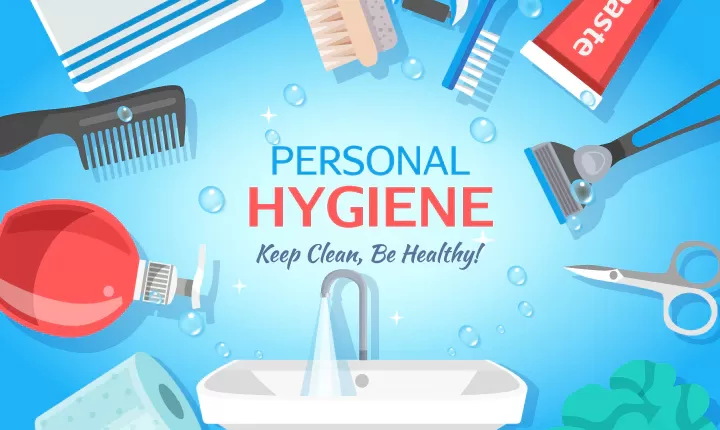Personal Hygiene: Why It’s Crucial for Your Health and Well-being
Introduction
Personal hygiene is the practice of maintaining cleanliness and grooming of the body to preserve overall health and well-being. Proper hygiene habits not only help you look and feel good but also prevent the spread of infectious diseases. This blog post will explore the importance of personal hygiene, its various aspects, and practical tips to incorporate good hygiene practices into your daily routine.
What is Personal Hygiene?
Personal hygiene involves daily routines and habits that keep the body clean and promote health. These practices include regular bathing, handwashing, oral care, nail care, and more. By maintaining personal hygiene, you can protect yourself and others from illnesses caused by bacteria, viruses, and other pathogens.
Importance of Personal Hygiene
- Prevents Illnesses
- Regular handwashing with soap removes harmful bacteria and viruses, reducing the risk of infections such as colds, flu, and gastrointestinal illnesses.
- Proper oral hygiene prevents dental problems like cavities, gum disease, and bad breath.
- Promotes Overall Health
- Good hygiene practices, such as bathing and washing hair, remove dirt, sweat, and germs from the skin, preventing skin infections and irritations.
- Maintaining cleanliness helps in detecting early signs of health issues, such as skin rashes or lumps, which can be addressed promptly.
- Boosts Self-Esteem and Confidence
- Feeling clean and fresh enhances your self-image and confidence.
- Good hygiene habits can improve social interactions and relationships.
- Prevents the Spread of Disease
- Practicing proper hygiene reduces the transmission of contagious diseases to others.
- In communal settings, such as schools or workplaces, good hygiene helps maintain a healthy environment for everyone.
Key Aspects of Personal Hygiene
- Hand Hygiene
- Wash your hands with soap and water for at least 20 seconds, especially after using the bathroom, before eating, and after coughing or sneezing.
- Use alcohol-based hand sanitizers when soap and water are not available.
- Oral Hygiene
- Brush your teeth at least twice a day with fluoride toothpaste.
- Floss daily to remove food particles and plaque between teeth.
- Visit your dentist regularly for check-ups and cleanings.
- Body Hygiene
- Bathe or shower daily to remove dirt, sweat, and bacteria from your skin.
- Use deodorant to manage body odor.
- Wear clean clothes and change them regularly.
- Hair Care
- Wash your hair regularly to keep it clean and free from oil and dandruff.
- Use appropriate hair products to maintain hair health.
- Nail Care
- Keep your nails trimmed and clean to prevent dirt and bacteria from accumulating.
- Avoid biting your nails, as it can introduce germs into your mouth.
- Food Hygiene
- Wash your hands before and after handling food.
- Ensure that food is cooked thoroughly and stored properly to prevent foodborne illnesses.
Practical Tips for Maintaining Personal Hygiene
- Create a Routine
- Establish a daily hygiene routine and stick to it.
- Set reminders if necessary to help you remember important hygiene tasks.
- Use Quality Products
- Invest in good-quality hygiene products such as soap, shampoo, toothpaste, and deodorant.
- Choose products suitable for your skin type and preferences.
- Stay Informed
- Keep up-to-date with hygiene best practices and incorporate them into your routine.
- Educate yourself on the importance of hygiene and its impact on health.
- Encourage Hygiene in Others
- Promote good hygiene habits among family members, especially children, to instill lifelong practices.
- Advocate for hygiene awareness in your community.
Conclusion
Personal hygiene is a fundamental aspect of health and well-being. By maintaining good hygiene practices, you can prevent illnesses, boost your confidence, and contribute to a healthier environment for yourself and those around you. Make personal hygiene a priority in your daily routine and encourage others to do the same.

